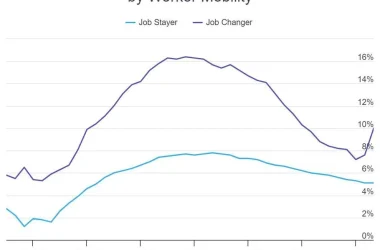By RUSTY MARKS
The State Journal
CHARLESTON, W.Va. — There are those who think the state-sanctioned West Virginia Jobs Investment Trust (WVJIT) venture capital fund is all one big boondoggle.
Pat Bond, longtime state businessman and a member of the Investment Trust’s board of directors, is not one of them.
“You miss all the shots you don’t take,” said Bond. “We’ve been doing that in West Virginia for years.”
“If not for startup capital, Tesla doesn’t happen,” said Investment Trust Executive Director Andrew Zulauf. “Apple doesn’t happen. Facebook doesn’t happen.”
The reason those innovative companies got their start, Zulauf said, was because “some group took a chance” and fronted them money.
According to the Jobs Investment Trust’s annual analysis of the fund’s investments, the trust has put almost $11 million into 20 different companies as of June 2017, including $4.4 million in loans. “Some of those companies are early stage, and some of them are pre-revenue,” Zulauf said. “It takes a while for these companies to gain traction in the market to become profitable.
“Of the 20, at least half are at or beyond profitability,” he said.
State House of Delegates Finance Chairman Eric Nelson, R-Kanawha, is a former venture capitalist who is familiar with the way such high-risk investments work.
“For every one investment I did, you looked at 30 or 40 opportunities,” Nelson said. “The rule of thumb is, for every 10 investments you make, you hope that two of those 10 do extremely well. You hope that five of them or so you would get your money back and see a return.
“You might lose money on two or three of them,” Nelson said.
Both Bond and Zulauf gave similar performance estimates for venture capital investments. According to an analysis of the financial impact of the Investment Trust prepared by the University of Charleston’s graduate school of business, The Jobs Investment Trust saw a return on its investments of between $4 million and $9 million between 1999 and 2010.
Nelson understands concerns that government shouldn’t be involved in providing business capital. “The private sector should be in this, but right now we haven’t got the private sector developed enough,” he said.
Zulauf agrees.
“I think it’s a legitimate question to ask whether a state should be involved in venture capital,” he said. He said states like California, New York and Massachusetts are centers of finance and industry, and have plenty of private sector investment possibilities.
But more isolated states are putting public monies into helping companies get started, both to bring economic development to their states and to keep entrepreneurs from going out of state in search of capital.
Ohio has the Third Frontier Fund, a $100 million-a-year state program that, among other things, provides startup capital. Pennsylvania also provides state and federal funding.
And the state of Kentucky matches federal Small Business Innovative Research grants up to $150,000 for federally recognized Phase I research projects and up to $500,000 for Phase II projects to spur technology innovation in the state.
State Commerce Secretary Woody Thrasher is fully behind the Jobs Investment Trust. In fact, he thinks the state should be putting even more resources into development.
“I think there’s more out there than JIT can deal with right now,” Thrasher said. “To be really effective, I think we need to come up with more money for startup, incubator and fledgling companies.”
In West Virginia, the Jobs Investment Trust is intended to be self-sustaining. “JIT, while we’re a state agency, does not receive any funding from the general revenue fund of the state of West Virginia,” Zulauf said.
The Jobs Investment Trust got a $4.5 million boost in 2010 from a portion of a $7.7 million grant under the Obama-era Small Business Jobs Act, but Zulauf said the trust derives most of its revenue from loan repayments, dividends from companies of which the trust is a stockholder, interest on monies the trust does not have invested, licensing and royalty agreements and transaction fees. He also said the trust tries to invest in a few more-established, money-making companies to provide a known revenue stream.
“We do look for later-stage companies that have some cash flow that can generate a dividend,” he said.
Zulauf knows venture capital is a risky business.
“We identify risk, then we mitigate risk,” he said. “We then price risk.
“And then we manage risk,” Zulauf said. With luck, the choices the investment trust board makes turn out to be worth the risk.
See more from The State Journal




